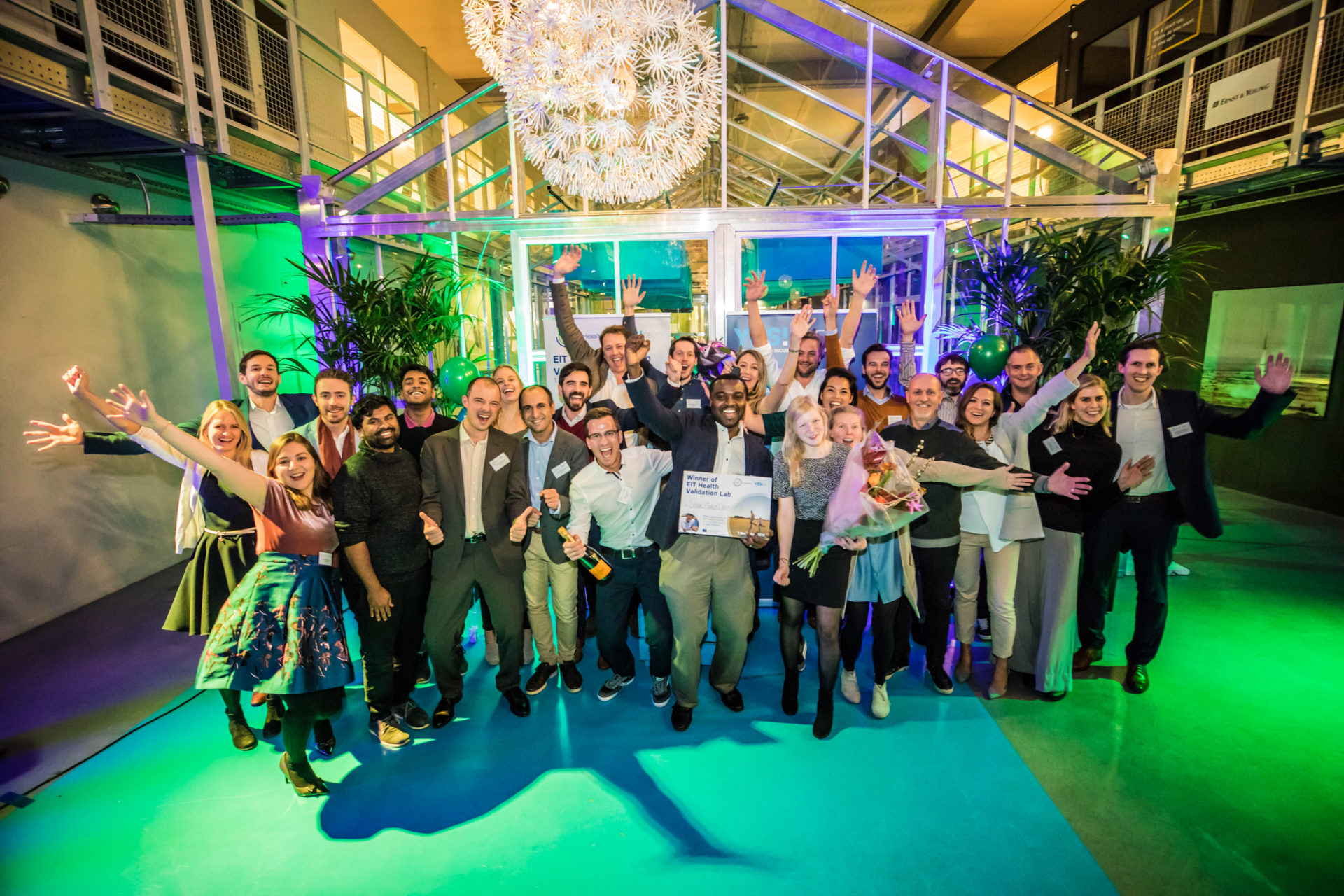Ten handpicked medtech start-ups followed the two-month EIT Health Validation Lab, which finished in Delft last week. What have they learned?
Medtech startups at YesDelft, Tope Agbana in the middle. (Photo: YesDelft)
Over the course of eight weeks 10 start-ups travelled through the Netherlands and across Europe to validate the business potential of their ideas with leading universities, healthcare companies and hospitals. This 3rd edition of the EIT Health (European Institute of Technology) Validation Lab was a partnership between EIT Health and YesDelft. It aims to help promising start-ups in medical technology to validate their products in close collaboration with their mentors and industry specialists.
TU Delta asked the three top-ranking participants how they felt about the experience and what they had learned.
Enlarging user group
Justin Fourie from Gyrafit thinks the two months were “exceptionally well spent”. Gyrafit makes insoles that can be adjusted to individual needs (check video for animation). One lesson for Gyrafit was to meet the market’s wishes instead of rolling out its own ideas. This helped it to find a new entry point to the market. It used to focus on podiatrists to prescribe its product, but now it is targeting physiotherapists, thereby reducing the number of people in the chain, while simultaneously targeting a larger user group.
Strategic alliance
EYE MIC develops systems to track eye-movements for controlling instruments. A surgeon could thus guide the operation microscope just by staring at the next target. Felix Karch from Germany says the validation lab was “super valuable”.
He appreciated the collaboration between the start-ups and the mutual feedback, and he feels that they have built up a good network. Just like Gyrafit, EYE MIC has changed its customer group. Originally it targeted users, like eye surgeons for instance. But after realising that users are not generally the buyers, it decided to direct its attention at microscope manufacturers, which may add the EYE MIC as a valuable add-on. Felix estimates its company will need another two years to get to the market stage.
Where is the pain?
“A scientist is always in the lab”, explains Temitope Agbana from Smart Medical Optics. “We bond with the technology. In this validation lab we learned to check whether the technology is relevant to the world. We ask ourselves where is the gap it can fill, where the pain it can soothe?” Smart Medical Optics run by Agbana, Mirte Vendel and Professor Gleb Vdovin, emerged as overall winner of the validation lab. It uses a combination of multimodal imaging platform and integrated smart algorithm to diagnose tropical diseases like malaria with reduced human intervention.
In the validation lab, Agbana discovered that his first customers may be closer than he thought. He developed the diagnostics tool with Nigeria, his homeland, in mind. But it turned out that academic and private institutions in the Netherlands working on developing malaria medications were desperate for a better optical instrument that can rapidly quantify parasitemia for their malaria culture. Another discovery was that NGOs with their headquarters in London or the Netherlands were keen to partner up to validate the technique in the field. Needless to say that their help simplifies logistics enormously.
The part of the EIT Health Validation Lab he liked most were the honest peer to peer feedback within the group and the camaraderie on the move. The members got so close that in the end they could do each other’s pitches. In fact, Agbana came close to selling one of the other participants’ products, he says laughingly.
Do you have a question or comment about this article?
j.w.wassink@tudelft.nl


Comments are closed.